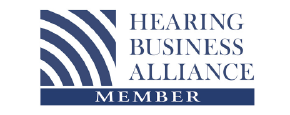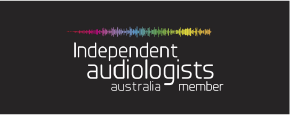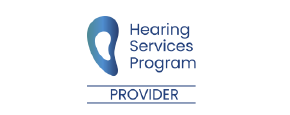Are you looking for a hearing test in Rothwell?
Are you having difficulty communicating? Our expert audiologists at Hearing Help can help improve your hearing clarity. Book your consultation today and reconnect with the sounds and people you love!
Hearing Test in Rothwell Brisbane
Are you looking for Hearing Test in Rothwell Brisbane? We are conveniently located within the Newport Physio and Health clinic at Newport Marketplace. Hearing Help offers comprehensive hearing tests conducted by experienced audiologists with over 20 years of experience. Our tests assess an individual’s ability to hear and process sound, identifying the presence, degree, and type of hearing loss. We utilise a range of diagnostic tools, including pure-tone audiometry, speech audiometry, and tympanometry, in a soundproof room to ensure accurate results. By addressing hearing health concerns, individuals can take proactive steps towards preserving their overall well-being. A deeper understanding of our services and the importance of hearing health can provide valuable insights into the benefits of our expert care.
About Hearing Help
As a leading provider of audiology services, Hearing Help is dedicated to delivering comprehensive hearing solutions to residents in Rothwell, Brisbane, and surrounding areas. Our team of experienced audiologists and hearing specialists are committed to providing personalised care, tailored to meet the unique needs of each individual. Utilising the latest advancements in hearing technology, we strive to ensure that our patients receive the most effective treatment options available.
Our extensive range of services includes hearing assessments, hearing aid fittings, and ongoing maintenance and support. We also provide education and counseling to help patients and their families navigate the complexities of hearing loss and rehabilitation. At Hearing Help, we believe that everyone deserves to experience the world around them with clarity and precision. Our mission is to empower individuals to take control of their hearing health, and to live a more fulfilling and connected life. By delivering exceptional service and expertise, we aim to make a lasting difference in the lives of our patients.
Why Choose Hearing Help?
Hearing Help in Newport, Brisbane, provides comprehensive hearing services to the local community. With over 20 years of experience, they offer unbiased advice and tailored solutions that cater to individual needs. Their services include hearing tests for adults and children, tinnitus assessments, ear wax removal, and caseworkplace assessments, ensuring a holistic approach to improving hearing health.
Importance of hearing health and regular hearing tests
Maintaining good hearing health is crucial for individuals of all ages, as it plays a significant role in our overall well-being and quality of life. Regular hearing tests are essential in detecting hearing problems early, which can prevent long-term damage and improve treatment outcomes. Hearing loss can significantly impact daily life, causing difficulties in communication, social interactions, and even affecting mental health. Moreover, research has shown that untreated hearing loss is linked to an increased risk of cognitive decline, dementia, and depression. By scheduling regular hearing tests, individuals can identify potential hearing issues promptly, allowing for timely interventions and minimising the risk of complications. In Rothwell, Brisbane, residents can take proactive steps towards preserving their hearing health by consulting with a qualified audiologist and undergoing a comprehensive hearing test.
What is a Hearing Test?
A comprehensive hearing test, also known as a hearing evaluation or audiologic assessment, is a series of examinations designed to measure an individual’s ability to hear and process sound. The primary goal of a hearing test is to identify the presence, degree, and type of hearing loss an individual may be experiencing. It is a crucial diagnostic tool used by audiologists and hearing specialists to assess the overall health of an individual’s auditory system.

During a hearing test, a series of sounds and tones are presented to the individual through headphones or earbuds, and their responses are recorded. The test is typically conducted in a soundproof room to minimise external distractions and ensure accurate results. The results of the hearing test are then used to create a personalised treatment plan, which may include recommendations for hearing aids, further testing, or other interventions. By identifying hearing loss and implementing appropriate interventions, individuals can significantly improve their communication skills, overall quality of life, and social interactions. Regular hearing tests are essential for maintaining optimal hearing health and addressing any potential issues promptly.
Types of Hearing Tests
Several types of assessments are employed to evaluate an individual’s auditory function, each designed to measure specific aspects of hearing and identify potential issues. Pure-tone audiometry is a fundamental assessment used to measure the faintest sounds that can be detected by an individual. This test involves listening to tones of varying frequencies and intensities through headphones. Speech audiometry, on the other hand, evaluates an individual’s ability to understand and repeat spoken words in different listening environments.
Bone conduction testing is another type of assessment that measures the ability of sound to travel through the bones of the skull to the inner ear. This test helps to identify issues with the middle ear. Tympanometry assesses the movement of the eardrum and middle ear bones. otoacoustic emission (OAE) testing measures the sounds produced by the inner ear in response to sound stimuli. Behavioral tests, such as visual reinforcement audiometry, are used to assess the hearing of infants and young children. A combination of these tests may be employed by an audiologist to obtain a comprehensive picture of an individual’s auditory function. These assessments enable healthcare professionals to identify hearing impairments and recommend suitable treatment options.
Preparing for Your Hearing Test
To ensure a comprehensive and accurate assessment of your hearing, it is essential to be prepared for your hearing test. In preparation, understanding what to expect from the process, from arrival to completion, can alleviate any concerns and help you feel more at ease. By being aware of the test’s duration and implementing a few simple tips, you can ensure a smooth and successful experience.
What to Expect
When you arrive for your hearing test, our experienced audiologists will guide you through a comprehensive evaluation process designed to assess your hearing thresholds and identify any potential issues. The purpose of this test is to gain a clear understanding of your hearing capabilities and detect any hearing-related problems. You can expect our audiologists to use specialised equipment to assess various aspects of your hearing.
Throughout the test, you will be required to provide feedback on what you hear. This may involve responding to sounds, repeating words, or signaling when you hear tones at different volumes. Your active participation will enable our audiologists to accurately evaluate your hearing. By understanding what to expect, you can feel more comfortable and confident during the testing process. Our audiologists are committed to ensuring your comfort and addressing any questions or concerns you may have. Your hearing test is an essential step towards preserving and protecting your hearing health.
Description of the process from arrival to completion
Upon arrival at our hearing clinic, a comprehensive hearing test process commences, encompassing a series of evaluations and assessments designed to provide a thorough understanding of your hearing capabilities. Our experienced audiologists will greet you and guide you through the process, ensuring that you are comfortable and informed throughout.
Initially, a detailed case history will be taken to identify any specific concerns or issues related to your hearing. A visual examination of your ears will then be conducted using an otoscope to inspect your ear canal and eardrum for any signs of damage or blockages. Next, you will be seated in a soundproof room where a series of hearing assessments will be conducted, including pure tone audiometry, speech audiometry, and impedance testing. These tests will evaluate your hearing thresholds, speech recognition abilities, and middle ear function. Throughout the process, our audiologists will provide clear explanations and answer any questions you may have, ensuring that you are fully informed and engaged in the assessment process. Our goal is to provide an accurate and comprehensive understanding of your hearing capabilities, enabling us to develop effective treatment plans tailored to your specific needs.
Duration of a typical hearing test
Following the comprehensive assessment process, it is natural to wonder how long a typical hearing test takes, and we find that most evaluations can be completed within a relatively short period of time. The duration of a hearing test can vary, but on average, a comprehensive hearing assessment takes around 30 to 60 minutes to complete. This timeframe allows our audiologists to conduct a thorough examination of an individual’s hearing, including the assessment of hearing thresholds, middle ear function, and speech understanding.
During this time, our experienced audiologists will guide the individual through each stage of the assessment, ensuring their comfort and understanding throughout the process. We understand that every individual’s hearing needs are unique, and we strive to provide personalised attention to address specific concerns and questions. Our streamlined assessment process enables us to gather accurate and comprehensive information about an individual’s hearing, allowing us to provide informed recommendations for further management or treatment, if required.
Tips for preparing for a hearing test
To ensure accurate results and a smooth assessment process, it is essential to properly prepare for your hearing test by taking a few simple steps beforehand. Prior to your appointment, make a list of any medications you are currently taking, as well as any medical conditions you have been diagnosed with, such as ear infections or hearing loss. This information will help the audiologist tailor the test to your specific needs.
On the day of the test, arrive at least 15 minutes early to complete any necessary paperwork and get settled. Avoid exposure to loud noises for at least 24 hours before the test, as this can affect your hearing and impact the results. Additionally, try to get a good night’s sleep and avoid caffeine and nicotine, which can affect your focus and listening abilities. By taking these steps, you can help ensure that your hearing test is accurate and stress-free.
The Hearing Test Procedure
The hearing test procedure at our hearing clinic begins with an initial consultation, where you will meet with one of our experienced audiologists to discuss your symptoms and medical history. This discussion is crucial in understanding your hearing concerns and allows us to tailor the testing process to your specific needs. Our audiologist will then conduct a series of tests to assess your hearing, which may include pure tone audiometry, speech audiometry, and other specialised tests.
Initial Consultation
During your initial consultation at our Rothwell clinic, a comprehensive hearing test will be conducted by one of our experienced audiologists to assess your hearing and identify any potential issues. This assessment is crucial in understanding the current state of your hearing and determining the best course of action to address any concerns. The audiologist will guide you through a series of tests designed to evaluate various aspects of your hearing.
The comprehensive hearing test typically includes pure-tone audiometry, speech audiometry, and tympanometry. Pure-tone audiometry assesses your ability to hear different frequencies and volumes. Speech audiometry evaluates your ability to understand speech in both quiet and noisy environments. Tympanometry measures the functioning of your eardrum and middle ear muscles. These tests provide a thorough understanding of your auditory system, enabling the audiologist to pinpoint any issues and counsel you on appropriate treatment options or further evaluations if necessary.
Discussion with an audiologist about symptoms and medical history
Following a comprehensive hearing test, your audiologist will engage in a thorough discussion with you to gather detailed information about your symptoms, medical history, and lifestyle to better understand the underlying causes of any hearing concerns. This discussion is a crucial component of the hearing test procedure, as it provides valuable insights into your overall health and helps identify potential contributing factors to your hearing issues.
During this conversation, your audiologist will inquire about your symptoms, such as the type and severity of hearing difficulties you are experiencing, as well as any associated conditions, such as tinnitus or earwax buildup. They will also ask about your medical history, including any previous ear surgeries, illnesses, or injuries that may be relevant to your hearing health. Additionally, your audiologist will discuss your lifestyle and how it may be impacting your hearing, including exposure to loud noises, ototoxic substances, or other environmental factors. By understanding these factors, your audiologist can develop a comprehensive treatment plan tailored to your unique needs.
Conducting the Tests
To accurately assess your hearing, a series of tests will be conducted in a soundproof room or booth, utilising specialised equipment designed to evaluate various aspects of your auditory function. The tests are non-invasive and pain-free, allowing you to relax and respond to the sounds presented to you. You will be seated in a comfortable position and instructed on how to respond to the sounds.
The tests may include pure tone audiometry, speech audiometry, and tympanometry. Pure tone audiometry assesses your ability to hear different frequencies, while speech audiometry evaluates your ability to understand speech in various environments. Tympanometry examines the function of your middle ear. The results of these tests will provide a comprehensive understanding of your hearing abilities and help identify any potential hearing loss or disorders.
Throughout the testing process, the audiologist will ensure that you are comfortable and informed about each test. The results will be analysed and discussed with you, providing a clear understanding of your hearing health and any necessary recommendations for treatment or further evaluation.
Post-Test Consultation
Upon completion of the hearing test, the audiologist will conduct a comprehensive post-test consultation to discuss the results and their implications. During this consultation, the audiologist will outline recommended treatment options tailored to the individual’s specific needs, which may include hearing aids, auditory therapy, or other interventions. The audiologist will also schedule follow-up appointments as necessary to ensure optimal outcomes and provide ongoing support.
Treatment Options and Recommendations
Based on the results of the hearing test, our audiologists will provide a comprehensive overview of the most suitable treatment options, including hearing aids, assistive listening devices, or referrals to medical specialists if necessary. Our audiologists will take the time to explain the benefits and limitations of each treatment option, ensuring that patients are well-informed and empowered to make decisions about their hearing health.
We offer a range of hearing aid options from leading manufacturers, including behind-the-ear, in-the-ear, and completely-in-canal models. Our audiologists will help patients choose the most suitable hearing aid style and technology level to meet their individual needs and preferences. Additionally, we may recommend assistive listening devices, such as personal amplifiers or FM systems, to help improve communication in specific situations. If medical treatment is required, our audiologists will provide a referral to a specialist, such as an ear, nose, and throat (ENT) surgeon or a neurologist. Our goal is to provide personalised treatment recommendations that address each patient’s unique hearing needs and improve their overall quality of life.
Scheduling Follow-Up Appointments
Following the discussion of treatment options and recommendations, the next step in the process is to schedule a follow-up appointment to review the patient’s progress, make any necessary adjustments to their treatment plan, and address any ongoing concerns or questions. This appointment is crucial in ensuring the patient is receiving the best possible care and that their treatment plan is on track to achieve the desired outcomes.
During the follow-up appointment, the audiologist will assess the patient’s response to treatment and make any necessary adjustments. They will also address any concerns or questions the patient may have, providing personalised care and support. In some cases, additional testing may be required to assess the patient’s progress.
Book an appointment
Ready to hear the world more clearly? Contact Hearing Help today to schedule your personalised hearing consultation. Call us or visit our website to find your path to better hearing. We’re here to help you connect with every sound life has to offer.
Address: Newport Marketplace Shopping Centre
Tenancy M01, 10 Lakeview Promenade, Newport QLD 4020
(located inside Newport Physio rooms)
Phone: 07 3214 3641
Email: hello@hearinghelpredcliffe.com.au










